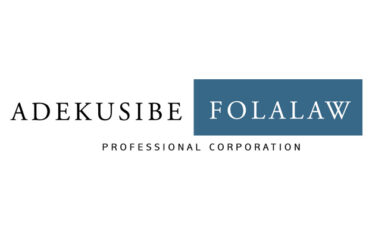What is Family Law in Canada?
Family law in Canada governs the legal relationships between individuals in familial contexts, including marriage, divorce, child custody, and support obligations. With approximately 40% of Canadian marriages ending in divorce and evolving family structures, understanding these laws is essential for navigating life transitions. This guide examines key aspects of family law across Canada’s provinces and territories, highlighting recent reforms and practical considerations.
1. Legal Framework for Family Law in Canada
Federal vs. Provincial Jurisdiction
-
Federal Authority (Divorce Act):
-
Divorce proceedings
-
Child/spousal support for married couples
-
Parenting arrangements post-divorce
-
-
Provincial/Territorial Authority (e.g., Ontario’s Family Law Act):
-
Property division
-
Child protection
-
Common-law relationships
-
Adoption procedures
-
Key Legislation
| Jurisdiction | Primary Legislation | Unique Features |
|---|---|---|
| Federal | Divorce Act | Nationwide standards |
| Ontario | Family Law Act | Equalization payments |
| Quebec | Civil Code of Quebec | Matrimonial regime rules |
| BC | Family Law Act | Parental responsibilities |
2. Marriage and Cohabitation Laws
Legal Marriage Requirements
-
Minimum age (16-19 depending on province)
-
Marriage license application
-
No blood relationships (prohibited degrees)
Common-Law Partnerships
-
Provincial Recognition (after 1-3 years cohabitation)
-
Rights: Vary significantly by province
-
Breakup: No automatic property division (except BC)
Note: Quebec does not recognize common-law “marriage-like” rights
3. Divorce Process in Canada
Grounds for Divorce
-
Separation for one year (no-fault, 98% of cases)
-
Adultery
-
Cruelty (physical/mental)
Key Steps in Divorce Proceedings
-
File application (joint or sole)
-
Serve documents to spouse
-
Negotiate settlement (parenting/support/property)
-
Obtain divorce order (6+ months processing)
Average Cost: $1,500-$5,000 (uncontested), $25,000-$150,000 (contested)
4. Child Custody and Support
Parenting Arrangements
-
Decision-making responsibility (replaces “custody”)
-
Parenting time (replaces “access”)
-
Factors considered: Child’s best interests, relationships, stability
Child Support Calculations
-
Federal Guidelines for married couples
-
Provincial Guidelines for unmarried parents
-
Based on:
-
Payor’s income
-
Number of children
-
Parenting time split
-
2024 Average Payments:
-
1 child: $300-$1,200/month
-
2 children: $500-$2,000/month
-
3+ children: $700-$3,000/month
5. Spousal Support Considerations
Entitlement Factors
-
Length of marriage/cohabitation
-
Roles during relationship
-
Economic impacts of separation
-
Needs/means of both parties
Advisory Guidelines
-
Duration: 0.5-1 year support per year of marriage
-
Amount: 1.5-2% of income difference per year
Example: 10-year marriage with $50,000 income disparity → $750-$1,000/month for 5-10 years
6. Property Division Rules
Equalization Process (Ontario-style)
-
List all assets/debts at separation date
-
Subtract pre-marriage assets
-
Equalize difference between spouses
Provincial Variations
| Province | Property Division Approach | Matrimonial Home Rules |
|---|---|---|
| Ontario | Equalization payment | Special treatment |
| BC | Equal division of family property | No special category |
| Alberta | Matrimonial property division | Exemptions possible |
| Quebec | Family patrimony rules | Strict division |
7. Recent Reforms (2023-2024)
Federal Changes
-
Divorce Act amendments:
-
Stronger focus on family violence
-
Updated relocation rules
-
Removal of “custody/access” terminology
-
Provincial Updates
-
Ontario: Electronic service of documents
-
BC: New family arbitration rules
-
Quebec: Extended parental leave provisions
Notable Cases
-
Colucci v. Colucci (SCC): Retroactive child support
-
Anderson v. Anderson (BCSC): Cryptocurrency in property division
-
Barendregt v. Grebliunas (SCC): Relocation standards
8. Alternative Dispute Resolution Options
Comparison of Methods
| Method | Cost | Duration | Success Rate |
|---|---|---|---|
| Mediation | $3,000-$10,000 | 2-6 months | 68% |
| Collaborative Law | $15,000-$50,000 | 4-12 months | 72% |
| Arbitration | $10,000-$75,000 | 3-9 months | 89% |
| Litigation | $25,000-$150,000+ | 1-5 years | 45% settlement |
9. When to Consult a Family Lawyer
Seek legal advice when:
✅ Contemplating separation/divorce
✅ Negotiating parenting arrangements
✅ Concerned about asset protection
✅ Facing international family issues
✅ Dealing with family violence
Legal Aid Availability
-
Income-based eligibility
-
Certificate programs for urgent matters
-
Limited scope retainers (unbundled services)
10. Future Trends in Canadian Family Law
Emerging Issues
-
Surrogacy and ART regulations
-
Digital asset division
-
Polyamorous relationship recognition
-
Climate migration impacts
Technological Impacts
-
Virtual court appearances
-
AI-assisted document review
-
Blockchain for support payments
Conclusion: Navigating Family Transitions in Canada
Canadian family law provides structured processes to resolve personal matters while adapting to societal changes. Understanding these frameworks helps individuals make informed decisions during emotionally challenging times.






















